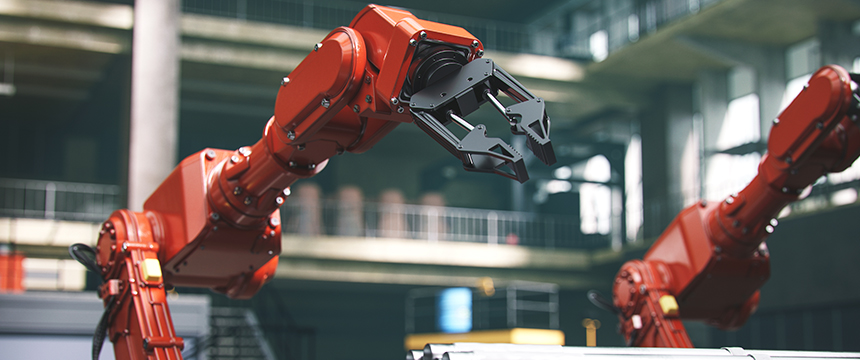The Dawn of AI in Manufacturing: Understanding Its Wide Reaching Impact on Industry

In the contemporary landscape of manufacturing, a silent revolution is taking place, driven by the integration of artificial intelligence (AI) into various processes. As factories become smarter and more interconnected, AI is poised to revolutionize the way manufacturers operate. However, understanding its impact requires a nuanced approach. In this article, we delve into the emerging role of AI in manufacturing and outline key considerations for manufacturers to navigate this transformative journey.
The Rise of AI in Manufacturing
AI’s presence in manufacturing is not new, but recent advancements in machine learning, robotics, and data analytics have accelerated its adoption. From predictive maintenance and quality control to supply chain optimization and autonomous production lines, AI is reshaping every facet of manufacturing operations.
Enhanced Efficiency and Productivity
One of the most significant impacts of AI in manufacturing is its ability to enhance efficiency and productivity. Through predictive analytics, AI algorithms can anticipate equipment failures, minimizing downtime and optimizing maintenance schedules. Furthermore, AI-driven automation streamlines production processes, reduces errors, and increases throughput.
Quality Assurance and Defect Detection
Maintaining high product quality is paramount in manufacturing. AI-powered systems excel in quality assurance by analyzing vast amounts of data to identify patterns and anomalies. Computer vision technology, coupled with machine learning algorithms, can detect defects with precision, ensuring that only flawless products reach the market.
Supply Chain Optimization
The complexity of modern supply chains presents numerous challenges for manufacturers. AI offers solutions by providing real-time insights into demand forecasting, inventory management, and logistics optimization. By analyzing data from multiple sources, AI algorithms can identify inefficiencies and recommend optimal strategies for cost reduction and risk mitigation.
Workforce Augmentation, Not Replacement
Contrary to popular belief, AI in manufacturing is not about replacing human workers but augmenting their capabilities. Collaborative robots, or “cobots,” can work alongside human operators, handling repetitive tasks and improving ergonomics. AI-enabled tools empower workers by providing actionable insights and decision support, ultimately enhancing productivity and job satisfaction.
Anticipating Legal Challenges
As manufacturers embrace AI, they must grapple with a myriad of legal issues stemming from its adoption and deployment. From data privacy concerns to liability and regulatory compliance, navigating the legal landscape of AI in manufacturing requires careful consideration and proactive measures.
Data Security and Privacy Concerns
As manufacturers embrace AI, data security and privacy emerge as critical considerations. The interconnected nature of smart factories creates vulnerabilities that malicious actors may exploit. Therefore, robust cybersecurity measures and data governance frameworks are essential to safeguard sensitive information and maintain trust among stakeholders.
Regulatory Compliance and Ethical Considerations
The deployment of AI in manufacturing raises questions about regulatory compliance and ethical implications. Manufacturers must ensure that AI systems adhere to industry standards and legal requirements regarding safety, environmental impact, and labor practices. Moreover, ethical considerations, such as bias mitigation and transparency in decision-making algorithms, are crucial for fostering trust and accountability.
Investment in Talent and Infrastructure
To fully harness the potential of AI, manufacturers must invest in talent development and infrastructure upgrades. Building a workforce with expertise in data science, machine learning, and robotics is essential for driving innovation and maximizing ROI. Additionally, upgrading legacy systems and integrating AI-compatible technologies lay the foundation for a future-ready manufacturing ecosystem.
Data Privacy and Security
The interconnected nature of AI systems raises concerns about data privacy and security. Manufacturers must safeguard sensitive information collected by AI algorithms to prevent unauthorized access or data breaches. Compliance with data protection regulations, such as GDPR and CCPA, is essential to maintain consumer trust and avoid legal repercussions.
Liability and Accountability
In the event of AI-related errors or accidents, questions of liability and accountability arise. Who is responsible when an AI-driven system makes a faulty decision or causes harm? Manufacturers must establish clear guidelines for accountability and ensure that AI systems adhere to safety standards and regulatory requirements to mitigate legal risks.
Ethical Considerations
The ethical implications of AI in manufacturing extend beyond regulatory compliance. Manufacturers must grapple with questions of bias, fairness, and transparency in AI algorithms. Ethical AI principles, such as fairness, accountability, and transparency (FAT), should guide the development and deployment of AI systems to uphold ethical standards and social responsibility.
Conclusion
The emergence of AI in manufacturing heralds a new era of innovation and efficiency. By embracing AI technologies and understanding their impact, manufacturers can unlock unprecedented opportunities for growth and competitiveness. However, success in this transformative journey requires a holistic approach, encompassing technological adoption, workforce empowerment, and ethical stewardship. As AI continues to evolve, manufacturers must remain adaptable and proactive, leveraging its potential to shape the future of manufacturing for generations to come.
